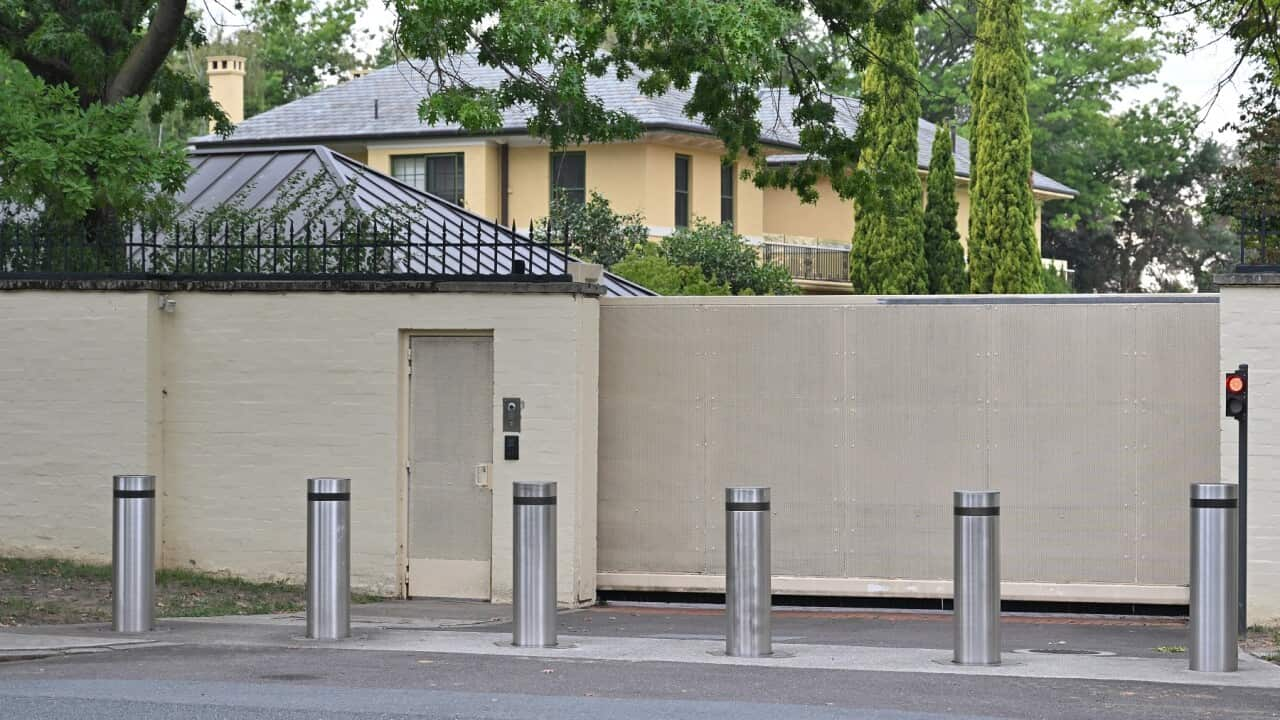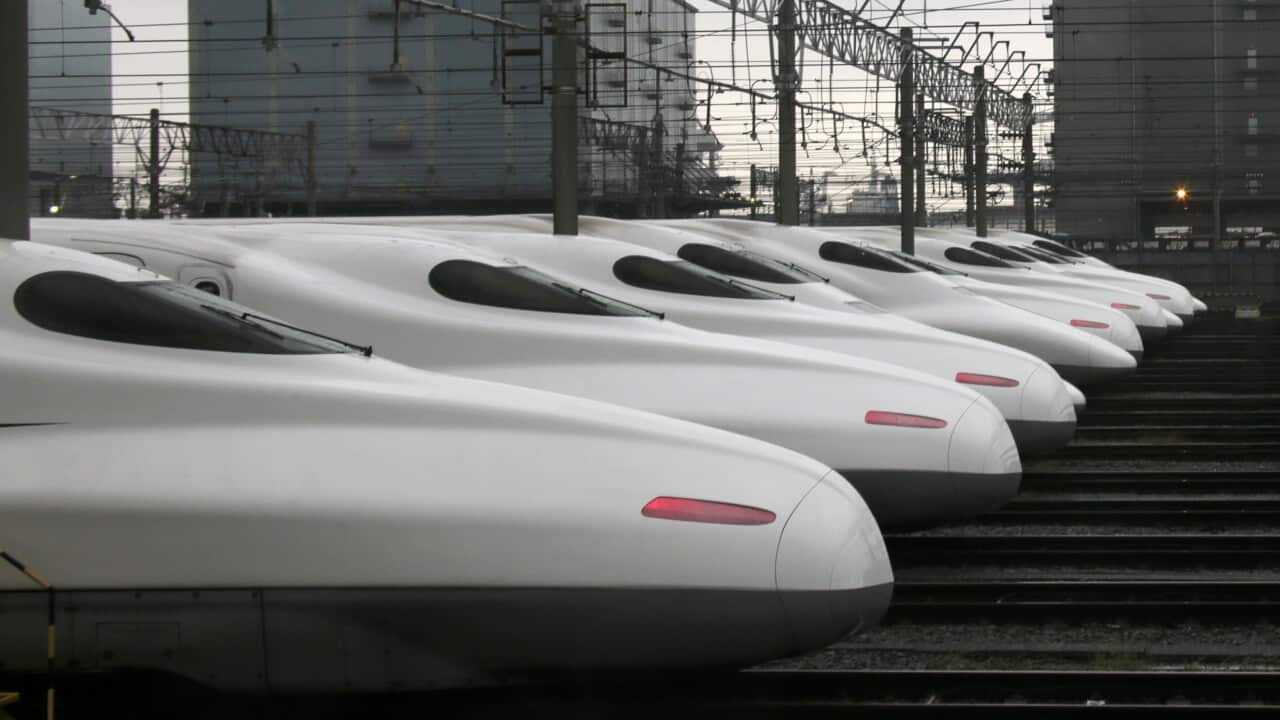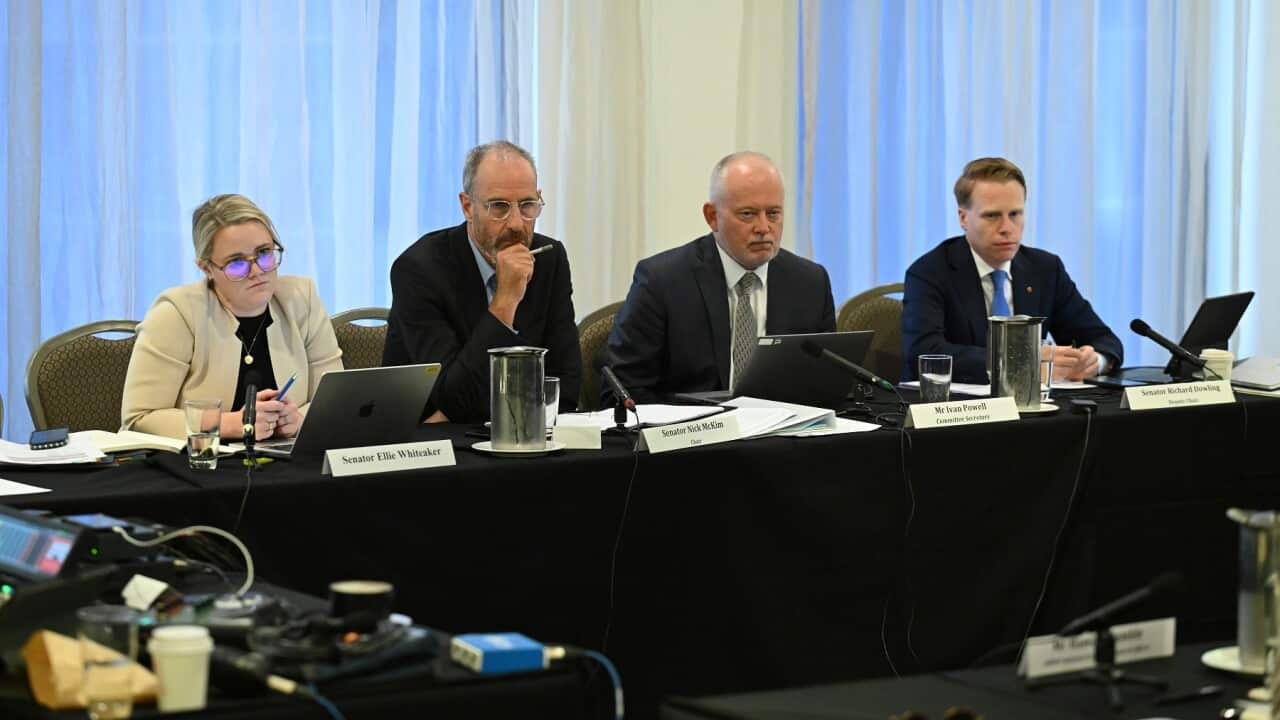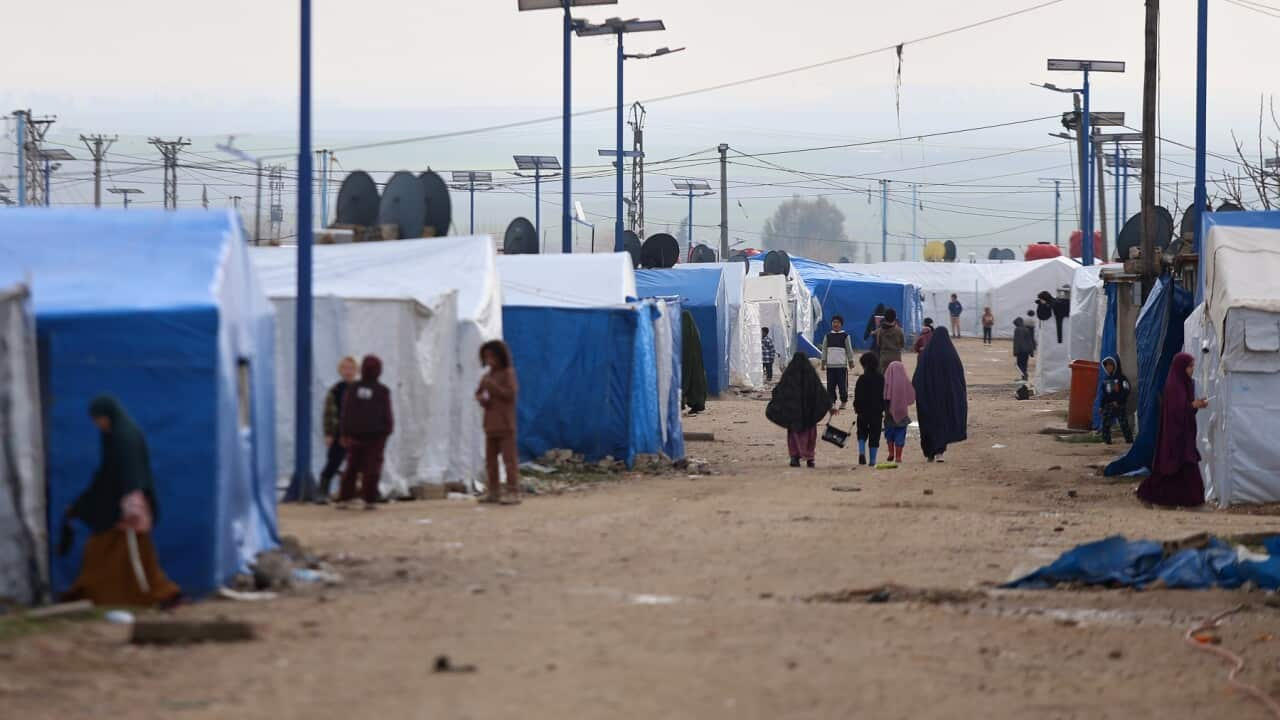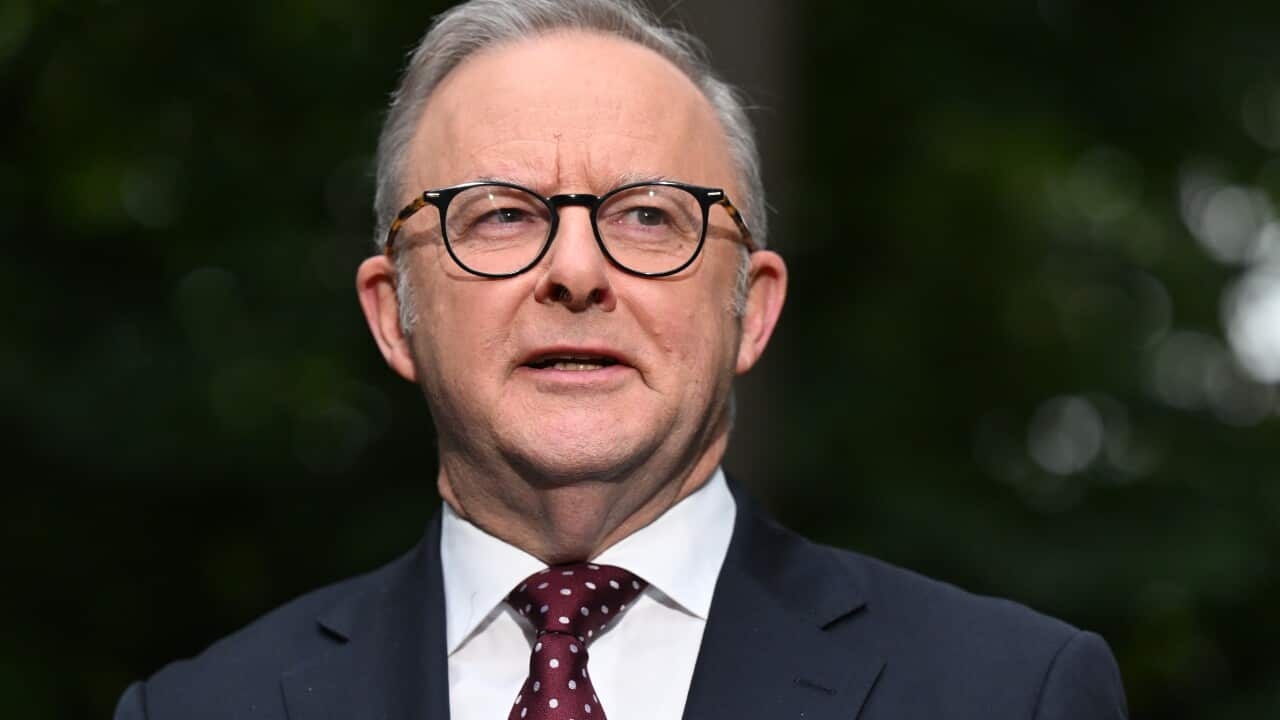Listen to Australian and world news, and follow trending topics with SBS News Podcasts.
TRANSCRIPT
“By 2030, we will know the answer. Survival? Or extinction?”
Chris Barrie is the former Defence Force chief and executive member of The Australian Security Leaders Climate Group.
As Australia navigates its way through an uncertain and tense geopolitical landscape, he says there is no greater threat than climate change.
“We are suggesting that the Australian Government turn back the diary by about 30 years and take a leadership role in the international community by making climate change front and center of Australian foreign policy. It will not only be good for us here in Australia, that will be good for our region too, where a lot of people expect countries like ours to step up when there's a need. And looking at the tea leaves and right now, that need is very apparent. For me, we're going entering a very dangerous period where the United States simply does not care about all of us.”
A report from The Australian Security Leaders Climate Group, titled 'A Climate First Foreign Policy For Australia', says climate disruption is Australia's greatest threat.
According to the report, climate change is not only an existential global threat but an immediate national security threat.
Former Colonel in the Australian Army, Neil Greet says Australia won't be able to defend itself from anything if it has to tackle increasing extreme weather events.
“When we talk about foreign policy and climate change, it is about catastrophic events that are concurrent. If something happens in the region at the same time something happens domestically, then we have immense problems. And so that is our challenge right now. South Australia is suffering the same problem, flood in the north, drought in the middle, and a sea algal bloom, that's causing catastrophic events in South Australia, so catastrophic and concurrent. It can happen.”
Over in the Senate, the Greens and some members of the crossbench are trying to order the government to release the National Climate Risk Assessment and National Adaptation Plan.
The National Climate Risk Assessment, commissioned by the government in 2022 to investigate national security threats posed by global heating, was never released.
Greens leader Larissa Waters says Australia's future will be very grim without urgent action to curb climate change.
“The Greens' pressure and this Senate has ordered Labor to release the National Climate Risk Assessment Report. And brave whistleblowers who have seen the climate risk report say that it details a future where we face a world on track for three degrees of warming, which means 50 degree days in Sydney and Melbourne. It means homes within five kilometers of the coast, which is much of us facing regular flooding and inundation, much of the country stuck in drought, leading to crop shortages and price spikes for essentials and all coral reefs dead.”
The Albanese government, which will release its emissions targets for 2035 in September, says the risk report will also be made public in September.
Independent Senator David Pocock says releasing the risk assessment after announcing new targets is unacceptable.
“This shows, which communities will face unbearable heat, which coastlines we'll lose and which parts of our economy will buckle under climate pressure. Insiders have called its findings dire and diabolical, yet the government is keeping it locked away. Keeping Australians in the dark about the risks to their homes their livelihoods and their safety. How can people judge whether the 2035 target is strong enough if they can't even see the facts.”
The minister representing the energy minister, Tim Ayres, says the order was a political stunt and diminishes the power of the Senate.
“I'll give you the tip, the way that you do it is you try to do it in a way that has impact. Because what this will do is have zero impact. Zero impact. Because it doesn't have the gravity, the seriousness, the moral seriousness, that that you are trying to confect. As the Senate is aware from the public comments made by the minister both the national climate risk assessment and the national adaptation plan will be released in September.”
Also in the Senate today, National Senator Matt Canavan announced plans to introduce a separate bill to repeal net zero emission targets.
Mr Canavan's bill is separate from the one introduced in the House by Nationals M-P Barnaby Joyce.
Dismissing the expert warnings, Mr Canavan told Sky News that achieving net zero will do nothing for Australians.
“I do intend to introduce that into the Senate as well, because I think, as I've said for a long time, it's high time our country had a proper debate about this. As I just mentioned, we were promised when net zero was signed up to, we were promised lower power bills. That hasn't happened. We were promised lots of jobs in critical minerals. Instead, we're losing industries hand over fist, with the risk of losing more in a very, very short space of time, so look I just don't think this thing is working, and it's about time it gets put under the microscope, we have a debate. And we give the Australian people a choice.”
According to a July YouGov poll, more than half of voters who had previously voted for the Coalition, but decided not to in 2025, say they were deterred by their policy on climate, renewables and housing.
Division over net zero appears to be widening in the Coalition, with both the Liberals and the Nationals reviewing net zero policies after their May election loss.
The National Party appointed Matt Canavan, an outspoken critic of net zero, to an internal committee tasked with reviewing the party’s policy on the issue.
Taking full advantage of the divisions, Prime Minister Anthony Albanese says that while the coalition fights with itself, his government is pushing forward on climate change.
“Those opposite, of course, are having a review. But today we know that Senator Canavan, the person in charge of reviewing net zero for the next, has announced he's introducing a bill in the Senate to abolish it. So he's reviewing it, but he's already going to legislate to abolish it. To mirror the member for New England. Spoiler alert, I reckon the review is going to say it should go spoiler alert. That's what we see, the Liberals fighting with the Liberals, the Nats fighting with the Nats and the Liberals and Nats fighting each other. And meanwhile, what we will do is fight for Australia.”

